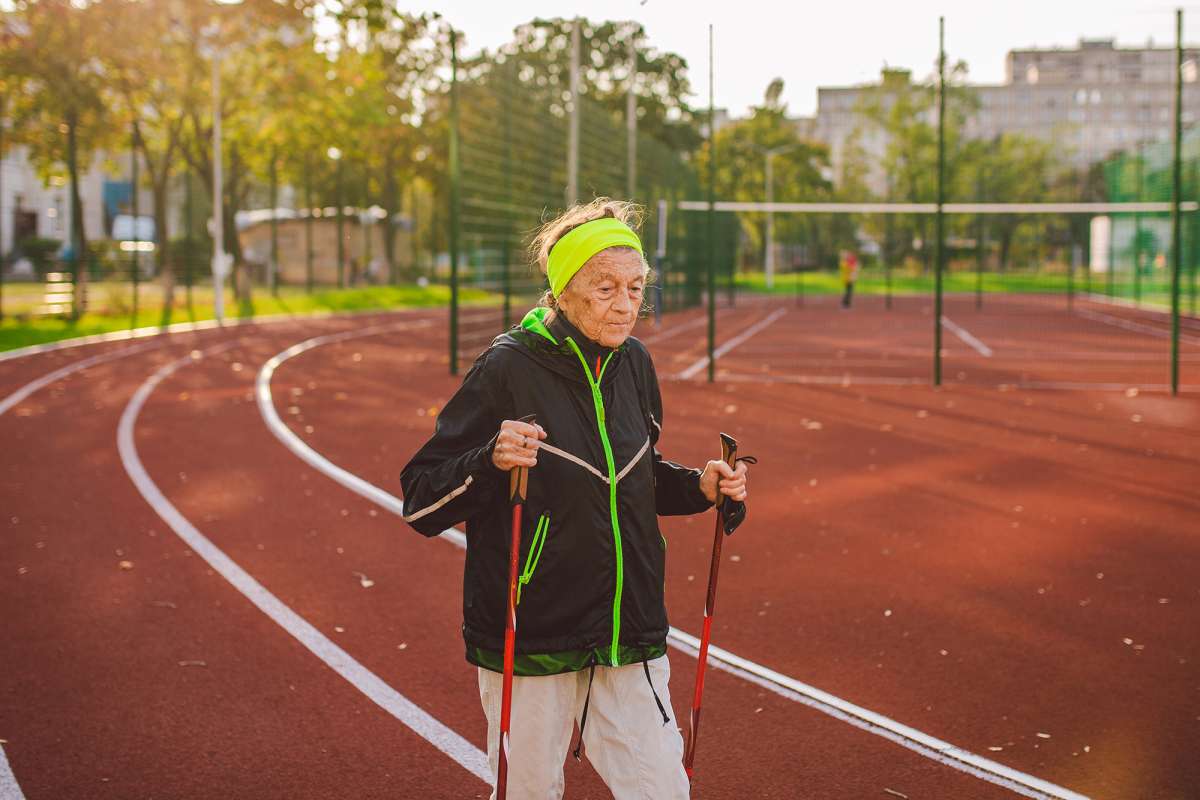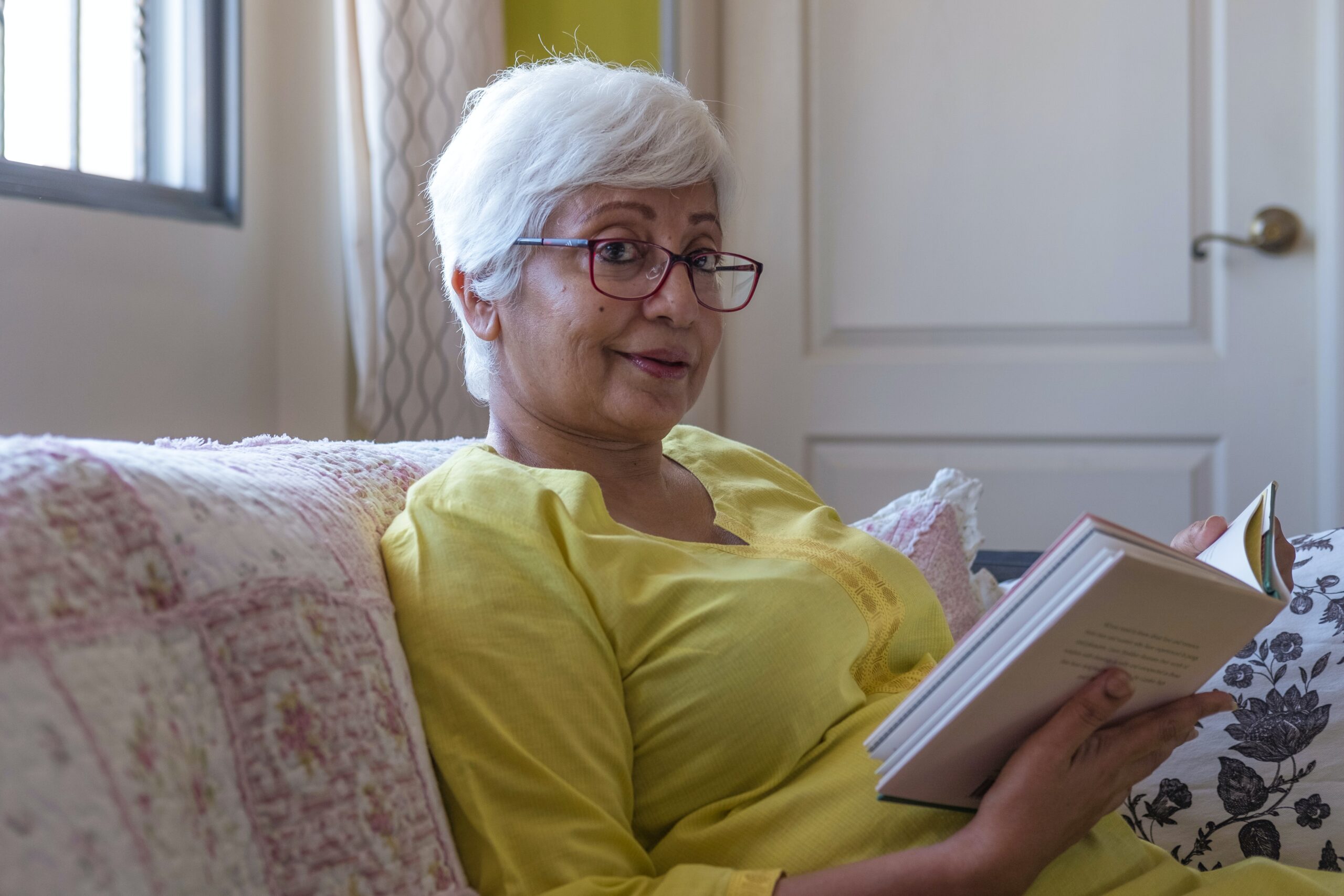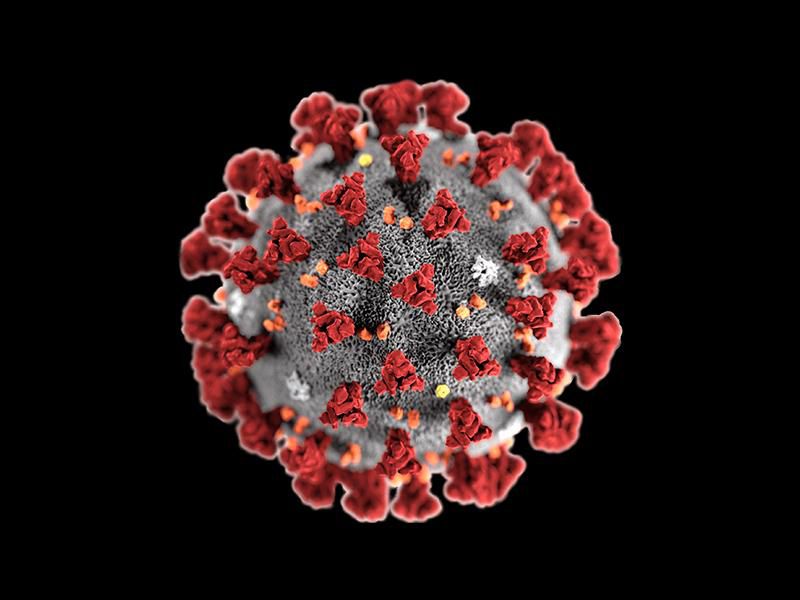With the growing hope and expectation that it’s possible to maintain cognitive health later in life, allowing people to age independently and enjoy the benefits of a fuller life, Angelika Schlanger, PhD, Executive Director of the McKnight Brain Research Foundation and Allison Brashear, MD, MBA, a McKnight Brain Research Foundation Trustee and Vice President for Health Sciences and Dean of the Jacobs School at the University at Buffalo were recently featured on the Gerontological Society of America’s (GSA) Momentum Discussions podcast.
New University of Florida Study Finds Seniors Over Age 85 Who Exercise Scored Higher on Cognitive Tests
ew research led by neuroscientists in The University of Florida’s College of Public Health and Health Professions found seniors age 85-99 who regularly do both aerobic and strength-training exercises scored higher on cognitive tests than those who are sedentary or limit their exercise to only cardio.
New Study Led by University of Florida Neuroscientists Identifies a Potential Biomarker for Decreased Brain Processing Speed in Aging
According to a new study published in Frontiers in Aging Neuroscience and led by University of Florida neuroscientists, Adam Woods, Ph.D. and Jessica Kraft, thinning of the cortex in several brain regions in advanced age may be linked with a decrease in the brain’s processing speed. Using a 3T Siemens MRI scanner, researchers from University of Florida and Unviersity of … Read More
Cognitive Health
Changes with your brain health happen slowly over time and aren’t always easy to detect. Changes in your ability to process, learn, or remember can be caused by stress, depression, loneliness, hearing and vision loss, and financial problems, among other difficulties.
UFMBI Neurologist Earns Alzheimer’s Association Lifetime Achievement Award
The McKnight Brain Research Foundation congratulates internationally renowned neurologist Steven T. DeKosky, M.D., the deputy director of UF’s Evelyn F. and William L. McKnight Brain Institute, for being honored with the Henry Wisniewski Lifetime Achievement Award presented during the 2020 Alzheimer’s Association International Conference. The award recognizes significant contributions to Alzheimer’s disease and dementia research, either through a single scientific discovery or … Read More
UF Neuroscientists Study Impact of COVID-19, Social Isolation on Cognitive, Mental Health of Seniors
University of Florida neuroscientists are embarking on a new study to understand the impact of COVID-19 on the cognitive, mental and brain health of older adults, as well as the impact of social isolation on them. Led by Adam J. Woods, Ph.D., the study will be funded by a $700,000 supplement from the National Institutes of Health that will be linked … Read More
McKnight Vice Chair Invited Editorial
In this invited editorial, McKnight Brain Research Foundation Vice Chair, Dr. Madhav Thambisetty, responds to a JAMA Open Network article by Drs. Koch, DeKosky and Goodman reporting on the impact data analyzing High Density Lipoproteins (HDL) from the Ginko Evaluation of Memory Study (GEMS) has on memory and dementia. “There may also be important clinical translational implications for the findings by … Read More
Memory and Aging
Changes with your brain health happen slowly over time and aren’t always easy to detect. Changes in your ability to process, learn, or remember can be caused by stress, depression, loneliness, hearing and vision loss, and financial problems, among other difficulties.
Age-Proof Your Brain by Keeping Your Heart Healthy, Study Says
In this CNN article, MBRF Trustee, Dr. Richard Isaacson provides thoughts on new research published by the American College of Cardiology showing people with more risk factors for heart disease experienced more cognitive decline than people with healthier hearts. “High blood pressure and diabetes can accelerate shrinkage of the brain. High cholesterol can increase the bad protein that builds up … Read More
McKnight Trustee Comments on New Study Revealing How the Brain Records Memories During Sleep
In this CNN article, MBRF Trustee, Dr. Richard Isaacson provides thoughts on new research uncovering how the brain records memories as we sleep. “This study is fascinating,” said Dr. Richard Isaacson. “Despite decades of research, it remains somewhat unclear how ‘short-term’ memories get filed away to become ‘long-term’ memories that can be recalled later.” “Using a brain-computer interface is an … Read More










